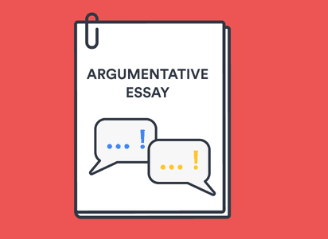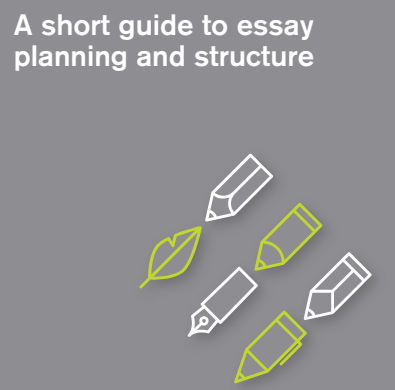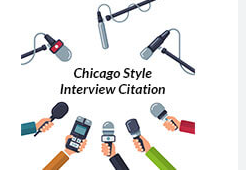The 9 Different Types of Diction in Writing, with Examples

In writing, diction is how words are chosen based on the audience, situation, or context. It can also be used to show other meanings or styles. For example, diction is the difference between the words you’d use in an email to your teacher or a work colleague and the words you’d use when talking to a close friend.
In real life, diction is a bit more complicated, so here we’ll talk about everything you need to know about it. We’ll start by giving a more precise definition of diction, then talk about the different types of diction and give some examples of each.
What is diction in writing?
In short, diction is the choice of words. Different styles are needed for different situations and audiences. For example, formal language is used when talking about work and school, while informal language is used when talking with friends. Think about the words you use when talking to a child or trying to explain a feeling you can’t quite put your finger on.
What is diction in writing? Diction defines the words you employ, which, in turn, determines your writing style and tone. A writer’s diction determines whether they seem pleasant or serious, knowledgeable or dumb, lyrical or dry.
Good authors employ diction to convey subtext and many meanings beyond the literal definitions of words. For instance, if a character uses academic jargon, the reader may presume that they want other characters to perceive them as intelligent. This indirect characterization has a greater effect than direct characterization, which consists of revealing character details in words.
Additionally, diction impacts sentence construction. For instance, you may utilize shorter phrases when addressing an audience with a short attention span and longer, more complicated lines while addressing a patient audience.
Sentence structure impacts paragraph structure, so you should consider diction before your writing goes on an unexpected path. Moreover, it makes diction an essential aspect of all jobs in writing.
What are different types of diction in speech?
Diction is a complicated topic since the term has two distinct meanings. The first definition, diction in writing, has already been covered. However, the second definition, diction in speech, are entirely distinct.
Diction in speech relates to pronunciation or how a speaker pronounces their words. A person with strong diction talks clearly, whereas a person with bad diction mumbles or mispronounces words. Speech diction is an essential talent for public speakers, actors, singers, and other professions that need clear communication.
The article types of diction focus primarily on diction, or the use of words, for writing.
Diction vs syntax
Syntax and diction are easily mistaken for one another. While diction is concerned with the selection of words, the syntax is concerned with their order and structure.
Although they are connected and impact one another, the two concepts are distinct. Diction requires choice and adaptability; even while describing the same item, various authors may use different words to sound distinctive. On the other hand, Syntax adheres more closely to grammatical rules; hence, it is less flexible. To be grammatically accurate, particular word sequences are required.
9 types of diction in writing
There are several types of diction, each with style optimal for various situations. Understanding the following nine types of diction will enhance the quality of your writing in several contexts.
For these instances, we show the various types of diction styles by illustrating how a speaker or writer would use that style. To illustrate the distinctions between each form of diction, we utilize the same example: a speaker who disagrees with what was just spoken.
- Formal diction:
Formal diction employs the correct meanings of words with a predominantly solemn tone. This fashion is prevalent in businesses, schools, and other official settings. Formal language does not take any chances and can come across as bland or monotonous. Yet, it is the greatest option when communicating to strangers or authority people for clarity.
Examples of formal language:
I am respectfully disagreeing. - Informal diction:
It is one of the types of diction which is the reverse of formal diction; it incorporates the use of words in a fun manner, including jokes and wordplay. Informal diction is how you speak to your closest friends and family instead of strangers or coworkers. It fits well in informal contexts but can sound inappropriate in formal ones.
An example of informal language:
Absolutely not; it is not the case. - Pedantic diction:
Pedantic diction employs excessive academic or “big” words, as though the speaker is attempting to demonstrate his intelligence. Pedantic language appears pompous in real life, yet it is excellent as a literary device. Literary speech might indicate that a character is too preoccupied with seeming educated or sophisticated, as in The Great Gatsby’s Jay Gatsby.
An example of pedantic language:
In analyzing your position, I’ve uncovered several key flaws, which I will now elaborate on. - Pedestrian diction:
It is one of the types of diction which is the antithesis of pedantic; rather than attempting to seem intelligent, it attempts to sound average or ordinary. It is believed that pedestrian diction, which lacks specialized vocabulary and slang, is how average people speak. It is the language style employed by politicians when addressing various audiences or by those with technical expertise while explaining something to those without such expertise.
Exemplification of pedestrian usage:
I get what you’re saying, but you’re leaving out something crucial. - Slang:
As an extension of casual diction, diction with slang includes words and phrases that only a specific person knows. Often, slang is separated by a generation, such as “sussy” for Generation Z and “nifty” for baby boomers. Slang can also include business jargon, which is slang exclusive to a certain profession or trade.
An example of slang usage:
You are delusional! - Colloquial diction:
It is a type of diction similar to slang, and colloquial diction refers to words and phrases used in some geographic regions. People on the Northeast and West Coast of the United States, for instance, use the term “soda,” whereas those in the Northwest and Midwest say “pop”, and those in the Deep South use “coke” as a general phrase. All three terms have the same meaning, yet each reflects the dialect of a particular location. Additionally, colloquial language comprises idioms that are prevalent specifically in particular regions.
Colloquial diction can also indicate dialects of a language, such as Rioplatense Spanish, whose grammatical rules and pronunciation differ from those of standard Spanish.
Example of colloquial usage:
It appears that you have loaded the incorrect wagon. - Abstract language:
It is one of the types of diction which refers to the discussion of intangible concepts or emotions. However, it is difficult to convey abstract ideas into words; hence abstract diction is frequently unclear or confusing.
A sample of abstract language:
What he talked about doesn’t feel good. - Concrete diction: Concrete diction is the reverse of abstract diction since it employs definite, plain language with minimum ambiguity. Instead, concrete diction presents things as they are, using correct word meanings and presenting the facts solely. Example of concrete language: I realize that you feel you are accurate but missing vital facts.
- Poetic diction:
Poetic diction uses rhymes, rhythm, and the way words sound to make a sentence sound good. Even though it doesn’t belong in everyday speech or writing, it is an essential part of many creative forms, such as poetry, song lyrics, rap, and even speechwriting to some extent.
A good example of poetic language:
What a stupid and clueless thing you just said!
If you hear my answer, your cheeks will turn red.
Frequently asked questions
What is diction?
In writing, the writer’s choice of words is called diction. Even if two words mean the same thing, choosing one over the other changes how the reader understands it.
Why is diction important?
With diction, a writer can show tone subtly and nuancedly. For instance, the formal language sounds more serious and professional, while informal language sounds more fun and friendly.
How many different types of diction are there?
There are many different types of diction, but the most common ones are formal, informal, pedantic, pedestrian, slang, colloquial, abstract, concrete, and poetic.
How do you use diction in writing?
The style and tone of a piece of writing depend on the words used, so diction is a vital tool. It can also help with indirect character development when used in a character’s dialogue.
Total Assignment Help
Incase, you are looking for an opportunity to work from home and earn big money. TotalAssignmenthelp Affiliate program is the best choice for you.
Do visit : https://www.totalassignmenthelp.com/affiliate-program for more details
Total Assignment help is an online assignment help service available in 9 countries. Our local operations span across Australia, US, UK, South east Asia and the Middle East. With extensive experience in academic writing, Total assignment help has a strong track record delivering quality writing at a nominal price that meet the unique needs of students in our local markets.
We have specialized network of highly trained writers, who can provide best possible assignment help solution for all your needs. Next time you are looking for assignment help, make sure to give us a try.
Looking for Assignment Help from Top Experts ?
Get the best Assignment Help from leading experts from the field of academics with assured onetime, 100% plagiarism free and top Quality delivery.



